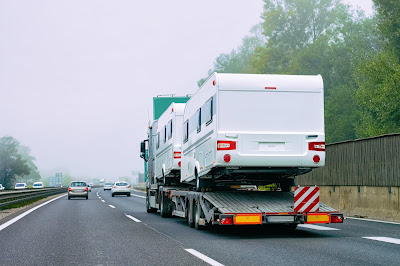Before You Start Searching for an RV…
Prior to jumping into your search for a used recreational vehicle, you need to determine what your budget is and what kind of RV you want. An average used RV will cost about $15,000 and up for a smaller used camper or about $50,000 and up for larger motorhomes. You can get RVs for cheaper than this, but it would be considered a rare find.
If you buy from a dealership, there are usually a variety of financing options available. If you decide to buy from a private seller, you will need to pay in full before you receive the RV or you could choose to let a financing company pay for you and pay them monthly. However, if you choose the latter option, you will then owe the financing company interest thus your overall cost will increase.
The type of RV that you decide to look into buying is entirely up to you. The types of recreational vehicles that you can choose from include:
- Class A, B & C Motorhomes
- Pop-ups
- Travel trailers
- Park models
- Truck campers
All have their unique advantages and disadvantages. Each of these options listed do offer sleeping areas, but other RVs such as fish houses generally do not have amenities for sleeping.
Online Research
Once you have determined your budget and decided what types of RVs interest you, you should start doing your research online and RV Trader is a great place to start. Once you’ve found a unit you like, you’ll want to also look into the history of the RV itself.
The best way to do this is by getting a vehicle history report. You can do this by visiting rvchecks.com – but there are a couple of limitations on that site. The first is that RVs registered in Oregon or Illinois are not required to provide you with any information. Another limitation is that rvchecks.com only provides info on motorized RVs. So, you will not be able to use the site for information on Travel Trailers, 5th Wheels, Tent Trailers or Campers.
If you want to get vehicle history information on those types of RVs you will need to contact the DMV or appropriate insurance company with the VIN number.
Ask Questions
Once you have gotten some info on the RV, you should contact the owner of the RV again and ask them any questions that you might have. This includes asking to see maintenance records, asking when you or someone in place of you can come inspect it, asking for the complete list of features, asking if it’s under warranty and/or has any service package as well as any other questions you might have.
Inspect the RV
You should never buy an RV or any other vehicle “sight unseen.” This means you should always go and inspect it. If for some reason you can’t inspect in-person, you can also connect with the seller to ask for a virtual video walkthrough. And keep in mind, you can always hire someone to do the inspection for you. You can do that by using a site like Lemon Squad.
For a fee, they will travel to the RV you are considering buying and conduct a thorough inspection for you. This will include a detailed report with more than 40 pictures. This is especially useful if you are buying a used RV from out of state so you will not need to travel just to inspect it.
If you do choose to inspect the recreational vehicle yourself, there are several things you must be sure that you check. This includes the steering, suspension, brakes, the engine, any body or flood damage, appliances, fluid levels, and taking it for a test drive if possible.
Make Your Offer
If you have had the inspection conducted and you are satisfied with the RV, then you can make your offer. If you love the RV and want it right away, you should match the asking price. However, if you want to see if you can save a few bucks, you can see if the seller is open to negotiations. However, make sure that your offer is not insultingly low because then talks could break down. Before you try to negotiate price, you should learn all that you can about the RV. This way you do not come off as uninformed when you are in negotiations.
Get the RV Home
Keep your options open by looking for used RVs from all over the country, not just near you. You are limiting the amount of RVs that you can potentially purchase and might end up missing out on the deal of a lifetime.
If you are worried about having to drive it home hundreds of miles from out of state, you do have another option. You can always have your RV shipped. Many auto transport companies offer oversized car shipping which often includes recreational vehicles.
Shipping your RV to your home is an option that you can use if the recreational vehicle is a hundred miles away or if it is a thousand miles away. You should just be sure to book your shipment at least a month in advance. Once you do that you will just need to make sure that the seller of the RV is prepared for the shipment.
By shipping your RV, you are not only saving yourself the trouble of traveling to the RV then driving it all the way home. You are also saving a considerable amount of money as well.
Clean the RV
When you finally get your newly purchased RV to your home, the first thing you will want to do is to clean it or have it cleaned for you. You can get your RV cleaned for you with a local RV cleaning and detailing service.
If you choose to clean the RV yourself, be prepared to spend a few hours doing so. The exact amount of time that you will end up spending cleaning the RV will depend on its size. Just be sure that you have the right supplies to get it cleaned. This will include a hose with a running water source, soap, a vacuum, a general-purpose cleaner solution, and several dry towels. You also might need a ladder so you can clean the top of the exterior properly.








One Response
Love this!
I'm able to work remotely and have always loved the idea of being able to travel and work at the same time.
Traveling the U.S. and seeing all the national parks would be a dream.